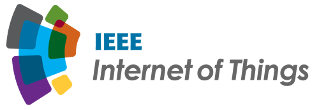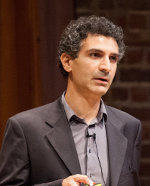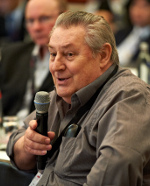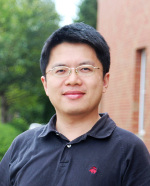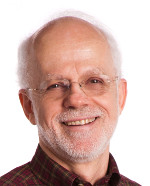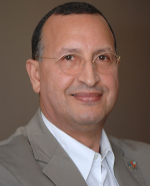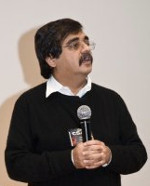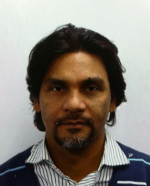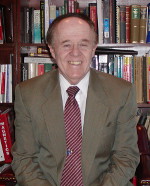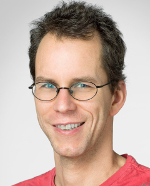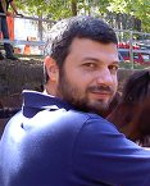IEEE IoT Newsletter - July 2015
IoT Connectivity
Geoff Varrall
Internet of Things connectivity is often discussed in the context of the 4G to 5G transition including the spectrum and standards requirements needed to achieve an order of magnitude reduction in connectivity cost and an order of magnitude decrease in connectivity energy consumption. There is a persuasive argument that this could be accomplished by repurposing GSM spectrum at 850 and 900 MHz, subdividing existing GSM 200 kHz channels into narrow band carriers that could support low data rate long range low cost connectivity.
Should Public Policy Lead, Follow or Get Out of the Way?
Andy Haire
It goes without challenge that the subject of the Internet of Things is among the most widely debated and discussed topics in our industry in recent memory. Rightly so; it serves as the fastest growing part of the communications sector. The mere existence of this newsletter from a highly respected institution proves the point.
The Case for IPv6 as an Enabler of the Internet of Things
Sébastien Ziegler, Peter Kirstein, Latif Ladid, Antonio Skarmeta and Antonio Jara
Many discussions of the Internet of Things (IoT) appear to assume that IP address space is an unlimited resource that will scale as the IoT scales to previously unimagined proportions. But the IP address space is not unlimited. In fact, the IPv4 address space has been depleted since February 2011. And that could have been the single best reason to consider IPv6 – Internet Protocol version 6 – for the future of IoT. Research has demonstrated that many other reasons exist as well.
IoT for Development (IoT4D)
Marco Zennaro and Antoine Bagula
The internet is evolving from a communication platform that provides access to information "anytime" and "anywhere" into the Internet of Things (IoT): a network that integrates "anything" by gathering and disseminating data from the physical world to enable a better understanding of our environment. IoT allows us to make inferences about phenomena and take mitigation measures against unwanted environmental effects.
This Month's Contributors
Geoff Varrall joined RTT in 1985 as an executive director and shareholder to develop RTT's international business as a provider of technology and business services to the wireless industry.
Read More >>
Andrew Haire with more than 30 years of experience spanning four continents has been associated with some of the industry’s most successful telecom initiatives.
Read More >>
Sébastien Ziegler is the founder and Director of Mandat International, a foundation based in Geneva with special consultative status to the UN and a member of the International Telecommunication Union.
Read More >>
Peter Kirstein is Professor of Computer Communications Systems at University College London. He is a fellow of many professional bodies including the Royal Academy of Engineering, American Academy of Arts and Science, US National Academy of Engineering.
Read More >>
Latif Ladid holds the following positions: Founder & President, IPv6 FORUM; Founder & Chair, 5G World Alliance; Chair, ETSI IP6 ISG; Chair, IEEE ComSoc 5G MWI & IoT subTC; Emeritus Trustee, Internet Society; Board Member IPv6 Ready & Enabled Logos Program.
Read More >>
Antonio F. Skarmeta received the M.S. degree in Computer Science from the University of Granada and B.S. (Hons.) and Ph.D. degrees in Computer Science from the University of Murcia, Spain.
Read More >>
Antonio Jara has received two Master Sciences (Hons. – valedictorian) degrees: a Master in Business Administration – MBA (Hons), and PhD (Cum Laude). He is especially focused on the design and development of new protocols for security and mobility for the Internet of things, the topic of his Ph.D.
Read More >>
Marco Zennaro received his Electronic Engineering degree from Universita' di Trieste, Italy and his PhD from KTH-Royal Institute of Technology, Stockholm, Sweden. His PhD thesis was on "Wireless Sensor Networks for Development: Potentials and Open Issues".
Read More >>
Antoine Bagula received the MEng degree in Computer Engineering from Catholic University of Louvain (UCL) in Belgium and the MSc Degree in computer science from the University of Stellenbosch in South Africa.
Read More >>
Contributions Welcomed
Click Here for Author's Guidelines >>
Would you like more information? Have any questions? Please contact:
Raffaele Giaffreda, Editor-in-Chief
raffaele.giaffreda@create-net.org
Stuart Sharrock, Managing Editor
stuartsharrock@ieee.org
About the IoT eNewsletter
The IEEE Internet of Things (IoT) eNewsletter is a bi-monthly online publication that features practical and timely technical information and forward-looking commentary on IoT developments and deployments around the world. Designed to bring clarity to global IoT-related activities and developments and foster greater understanding and collaboration between diverse stakeholders, the IEEE IoT eNewsletter provides a broad view by bringing together diverse experts, thought leaders, and decision-makers to exchange information and discuss IoT-related issues.
IEEE IoT Newsletter Editorial Board
Sign Up for IoT Technical Community Updates
Calendar of Events
IEEE 8th World Forum on Internet of Things (WF-IoT) 2022
26 October-11 November 2022
Call for Papers
IEEE Internet of Things Journal
Special issue on Towards Intelligence for Space-Air-Ground Integrated Internet of Things
Submission Deadline: 1 November 2022
Special issue on Smart Blockchain for IoT Trust, Security and Privacy
Submission Deadline: 15 November 2022
Past Issues
September 2022
July 2022
March 2022
January 2022
November 2021
September 2021
July 2021
May 2021
March 2021
January 2021
November 2020
July 2020
May 2020
March 2020
January 2020
November 2019
September 2019
July 2019
May 2019
March 2019
January 2019
November 2018
September 2018
July 2018
May 2018
March 2018
January 2018
November 2017
September 2017
July 2017
May 2017
March 2017
January 2017
November 2016
September 2016
July 2016
May 2016
March 2016
January 2016
November 2015
September 2015
July 2015
May 2015
March 2015
January 2015
November 2014
September 2014

